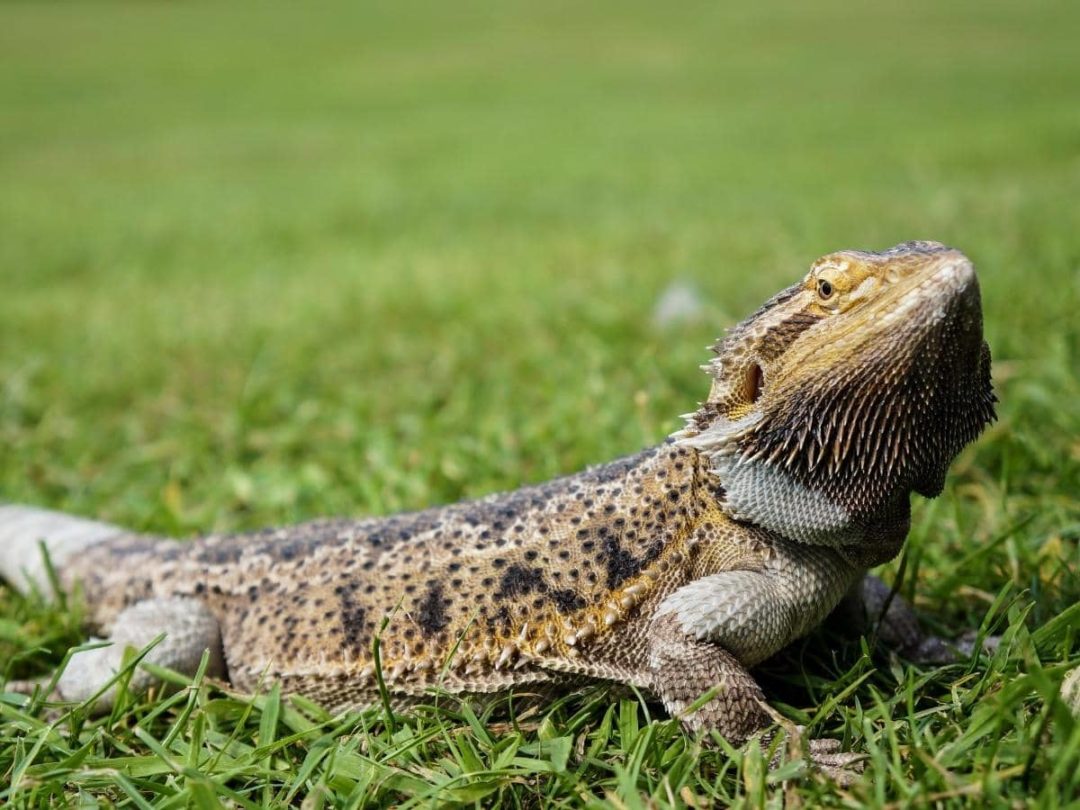Kookenheimer the bearded dragon eating Dubia Roaches! YouTube

Bearded Dragon Eating Dubia Roaches and Butternut Squash YouTube
Yes, you can feed butternut squash to your bearded dragon, as they are a good source of vitamins, minerals, and fiber that can contribute to a healthy, balanced bearded dragon diet.It contains vitamin A, vitamin C, calcium, and beta carotene. cooked and bite-sized butternut squash can make a nice addition to a varied bearded dragon diet.

Bearded Dragon Food List (With Data)
Yes, bearded dragons can safely eat butternut squash. It provides a great source of key vitamins and nutrients that are vital to a bearded dragon's health. The high fiber content also aids digestion. Butternut squash can be an excellent occasional treat as part of a varied diet for bearded dragons. What are the Benefits of Feeding Butternut.

WEEK ENDING 08/07/2016 Williamson County Master Gardeners
Can Bearded Dragons Eat Butternut Squash? Yes! Bearded dragons can eat butternut squash every day. Here are the nutritional highlights: Beta carotene Vitamin C; Magnesium Potassium Calcium to phosphorus ratio of 1.5 to 1; Butternut squash is also rich in antioxidants, which will help boost your dragon's immune system, among other benefits.

Bearded Dragon (Daisy) Eating a Dubia Roach // 4K UHD. YouTube
As a beginner owner, it's important to know that bearded dragons are omnivores, which means they should eat a variety of foods including fruits, vegetables, and insects. Nutritional Benefits of Butternut Squash for Bearded Dragons. Butternut squash is a nutrient-rich food that can provide many health benefits for bearded dragons.

Bearded dragon eats dubia roach YouTube
Bearded dragons can eat butternut squash daily as part of their diet. Butternut squash is a great source of vitamins, minerals and fiber that are essential for the health of bearded dragons. It provides them with beta-carotene, potassium, vitamin A, vitamin C, folate, and many antioxidants found in its bright orange flesh..

Bearded Dragon (Blaze) Eating Greens & Butternut Squash. YouTube
Yes, bearded dragons can eat squash. Beardies can eat all types of squash as a matter of fact. Squash is a vegetable and it contains valuable nutrients. Bearded dragons need certain vitamins and minerals to be healthy and squash has some of these, so you can give your beardie the vegetable freely. Check out which vegetables bearded dragons can eat.

Bearded Dragon Owners // Butternut Squash & Greens YouTube
Butternut squash is an excellent addition to a bearded dragon's diet - it contains vital nutrients, including decent amounts of Vitamin A, C, various B-vitamins, and minerals such as Magnesium and Potassium. Feeding butternut squash raw is best; grated or chopped into tiny pieces will ensure such nutrients are obtained.

Bearded Dragon (Daisy) Eating Butternut Squash. YouTube
See guidelines below: 1) Place the Butternut squash on a chopping board and trim the top and bottom. 2) Cut the squash to the point where the long neck meets the bottom section. Proceed to cut the pieces in half, and this should expose the seeds. 3) Remove the seeds and peel the skin. 4) Once the seeds have been removed and peeled, you can dice.

Bearded dragon eating butternut squash noodles YouTube
The answer is yes, butternut squash is an excellent fleshy vegetable for bearded dragons. It can be fed regularly, although should form part of a balanced diet so mixed with other vegetables too. Butternut squash provides a good variation of colour and texture when combined with leafy greens - but on its own doesn't provide a huge amount of.

Can Bearded Dragons Eat Butternut Squash? A Detailed Guide Reptiles Town
2. Can butternut squash be a staple food in my bearded dragon's diet? While butternut squash can be a part of your bearded dragon's diet, it should not be the sole staple food. It's essential to provide a balanced diet that includes a variety of vegetables, greens, and live insects to fulfill your pet's nutritional requirements. 3.

Bearded dragons eating pumpkin butternut squash YouTube
What is Butternut Squash for Bearded Dragons? Butternut Squash for Bearded Dragons is a starchy root vegetable with dense orange flesh that's easy to digest. They're high in fiber, low in fat, and are an excellent source of carotenoids. Butternut squash is technically a fruit even though it's more regularly served as a vegetable.

Roasted Butternut Squash and Fresh Fruit trianglefarmersmarkets
Bearded dragons are fascinating reptiles that make popular pets due to their unique appearance and relatively low maintenance. As responsible pet owners, it's essential to provide them with a well-balanced diet to ensure their overall health and well-being.

Kookenheimer the bearded dragon eating Dubia Roaches! YouTube
Bearded dragons can eat various types of squash, including butternut, spaghetti, acorn, yellow squash, hubbard, and scallop squash. Squash provides essential nutrients such as vitamin C, beta carotene, vitamin A, B vitamins, folate, iron, and calcium.

Can Bearded Dragons Eat Butternut Squash? (Answered)
The fast answer is yes; bearded dragons can eat butternut squash. It should be offered to them regularly since butternut squash have few issues. In this post, we'll take a look into the nutritional benefits of butternut squash for bearded dragons and the potential risks associated with feeding them this food.

Roasted Butternut Squash Pick Fresh Foods Pick Fresh Foods
Yes, bearded dragons can eat butternut squash as part of a balanced diet. Butternut squash is rich in vitamins and minerals, making it a nutritious option for your pet. However, it should be fed to bearded dragons in moderation, as part of a varied diet that also includes other vegetables, fruits, and insects.

One Creative Housewife Oven Roasted Butternut Squash
Here are key points to consider when incorporating squash into your bearded dragon's menu: 1. Nutritional Benefits: Squash is a nutritious vegetable and a good source of vitamins, minerals, and dietary fiber. It contains essential nutrients like vitamin A, vitamin C, potassium, and beta-carotene. 2.